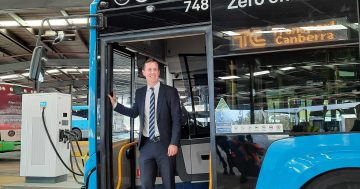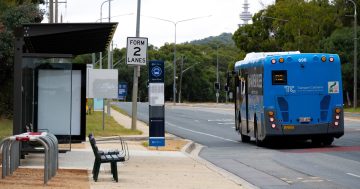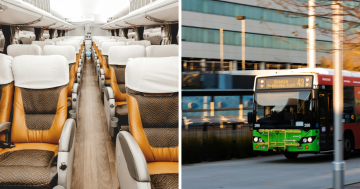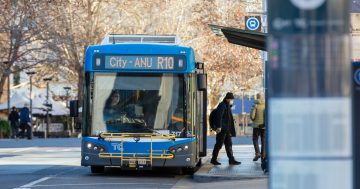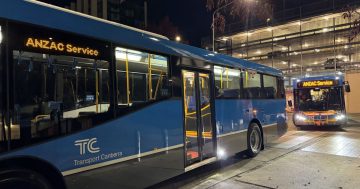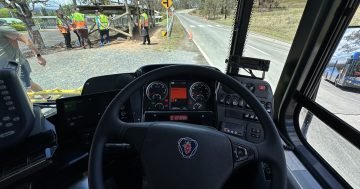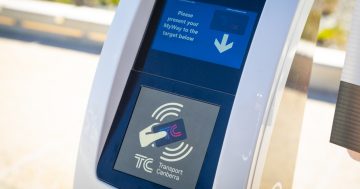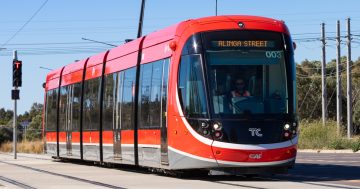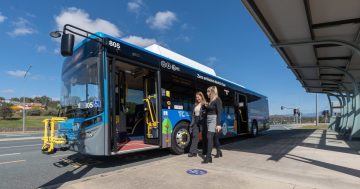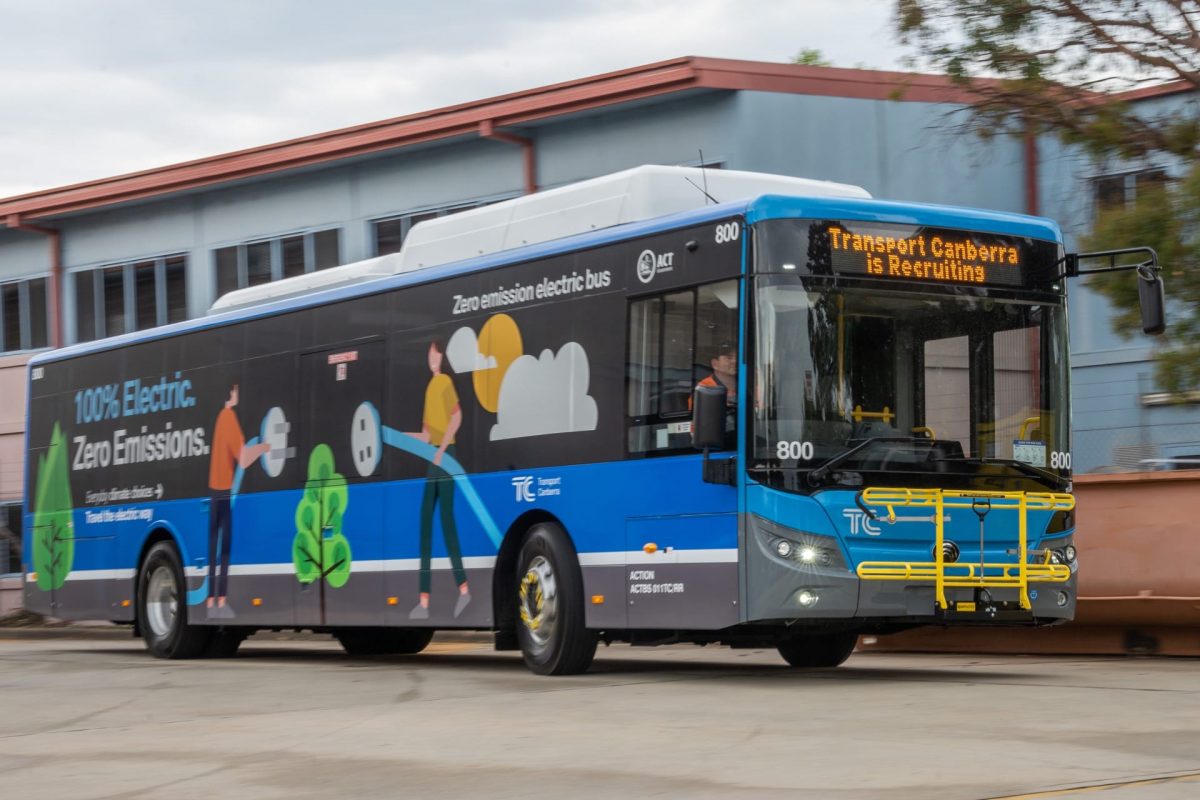
The first electric buses arrived in Canberra in January 2023. Photo: Transport Canberra.
Since the first electric buses took to Canberra’s roads in January this year, we’ve come to recognise them because of the characteristic bing-bong noise they make at low speed, designed to warn pedestrians of their approach.
No longer.
As the Public Transport Association of Canberra (PTCBR) noted, “No more bing-bongs! Replaced with a scratchy white noise”.
“Probably for the best, but still, RIP bing-bong.”
The most recent wave of Custom Denning buses brings a new ‘Acoustic Vehicle Alerting System’ (AVAS), which Transport Canberra (TC) said is meant to replicate the sound of a diesel engine. And all of the electric buses have since been updated with it.
“The noise simulates the sound of an engine and sounds when the vehicle is travelling at a slow speed,” a TC spokesperson said.
“This is a safety feature to ensure that the community, particularly those who are visually impaired, are able to identify the familiar sound of a moving bus.”
Like any other vehicle on our roads, Canberra’s buses abide by the Australian Design Rules (ADRs). Until now, these have included limits on the sound emitted by vehicles, but the largely silent electric types have the opposite problem.
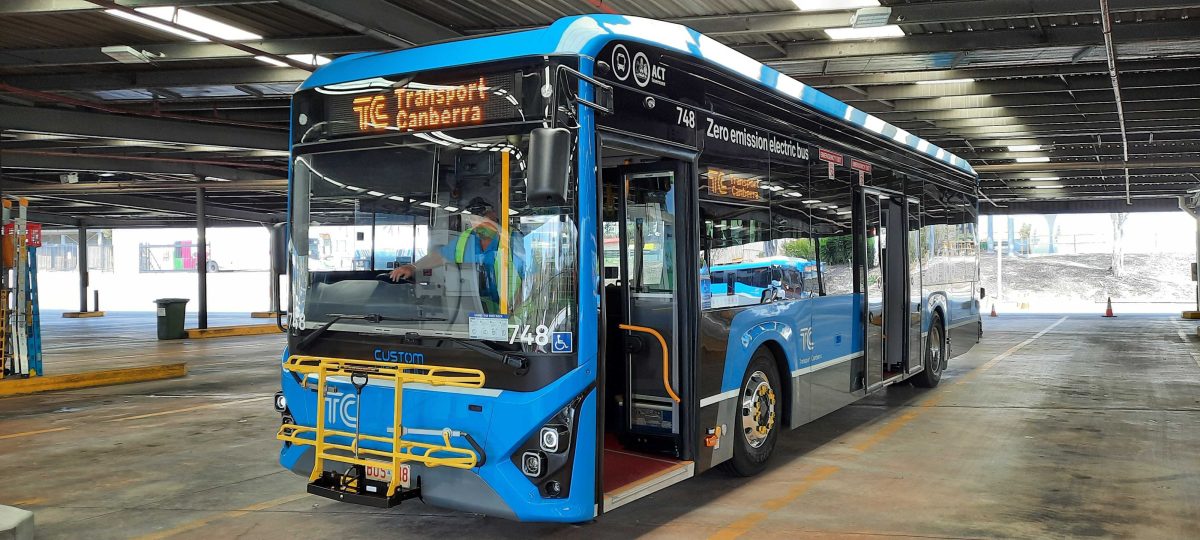
The first of four Australian-built Custom Denning ‘Element’ low-floor battery electric buses arrived last month. Photo: Ian Bushnell.
Earlier this year, Vision Australia petitioned the Australian Government to mandate AVAS for all electric vehicles because of the threat they pose to blind or low-vision pedestrians.
It cited a study conducted by the Monash University Accident Research Centre in 2018 which found more than one in three blind or low-vision participants said they have either been involved in an accident or a near-collision with an electric vehicle due to the lack of noise.
The federal Department of Infrastructure, Transport, Regional Development, Communications and the Arts agreed to seek feedback on plans to bring AVAS rules in line with United Nations Regulation 138/01 (UN R138/01).
This would require all new light electric road vehicles (including fully electric, hydrogen fuel cell and hybrid vehicles) to be fitted with AVAS.
This would take the form of a continuous sound up to 20 km/h, varying in volume and pitch by at least 0.8 per cent every 1 km/h, so pedestrians not only know the vehicle is moving but can gauge how fast it’s moving as well.
The department has yet to publicly sign off on any ADRs regarding noise from heavy electric vehicles, but Transport Canberra told Region the new sound would comply with ADR regulations that are “being updated to ensure that there is a consistent sound across all electric buses within Australia”.
“All electric buses in the Transport Canberra fleet will be updated to have the new sound in place of the beeping to comply with incoming ADR regulations.”
However, it’s understood drivers weren’t initially told of the change in noise, so one submitted an electric bus to the service department after thinking the speaker system was broken.
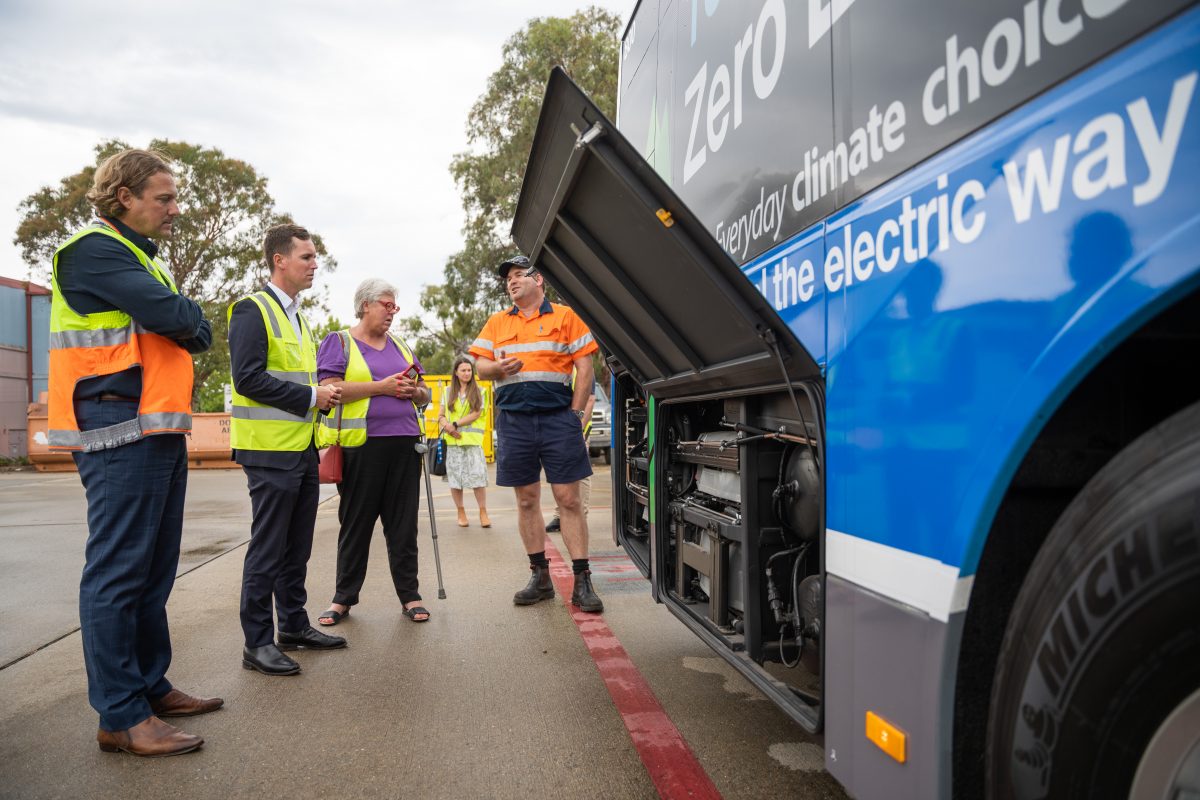
The new electric buses take up to five hours to charge. Photo: Transport Canberra.
Public Transport Association of Canberra (PTCBR) chair Ryan Hemsley described the outgoing bing-bong noise as “one of those unique features that gets your attention”, but not everyone is expected to miss it.
“Some people love it, and for others, it got old pretty quickly – our members have a wide variety of opinions on the matter,” he said.
“Of course, safety needs to be the most important consideration, and for those who can’t readily see our buses, we need to make sure they can hear them. We hope Transport Canberra is consulting closely with affected passengers and monitoring the new acoustic devices to ensure everyone knows when our buses are nearby.”
The first of four new Custom Denning buses (from Sydney) arrived at the Belconnen Depot in October, taking the total number of electric buses in the fleet to 16. Another further 90 Yutong buses from China are on order and should be delivered in the next three years.
Original Article published by James Coleman on Riotact.




